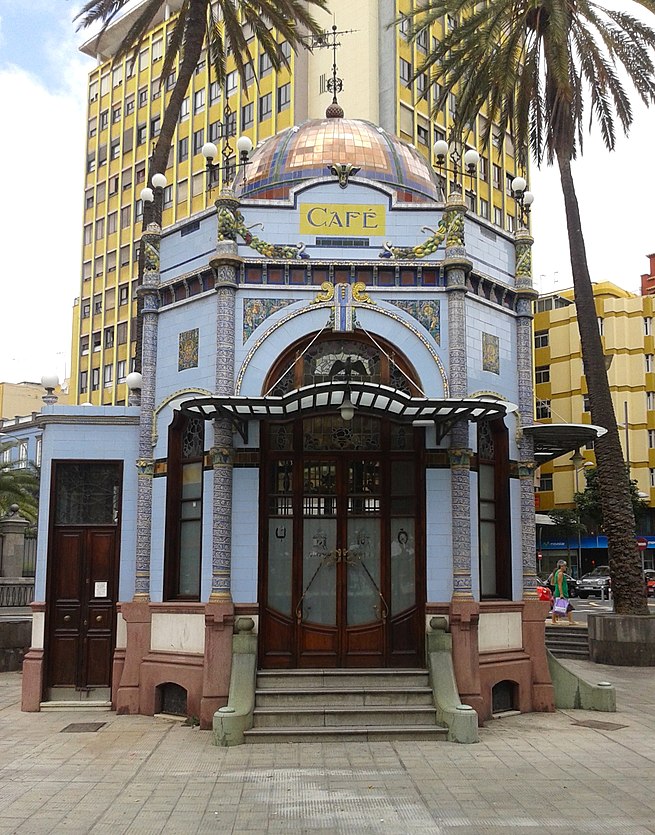
-
Kiosk
Historically, a kiosk (from Persian kūshk) was a small garden pavilion open on some or all sides common in Persia, the Indian subcontinent, and in the Ottoman Empire from the 13th century onward. Today, several examples of this type of kiosk still exist in and around the Topkapı Palace in Istanbul, and they can be seen in Balkan countries.
The word is used in English-speaking countries for small booths offering goods and services. In Australia they usually offer food service. Freestanding computer terminals dispensing information are called interactive kiosks.
-
Stall (noun)
A compartment for a single animal in a stable or cattle shed.
-
Stall (noun)
A stable; a place for cattle.
-
Stall (noun)
A bench or table on which small articles of merchandise are exposed for sale.
-
Stall (noun)
A small open-fronted shop, for example in a market.
-
Stall (noun)
A very small room used for a shower or a toilet.
-
Stall (noun)
A seat in a theatre close to and (about) level with the stage; traditionally, a seat with arms, or otherwise partly enclosed, as distinguished from the benches, sofas, etc.
-
Stall (noun)
Loss of lift due to an airfoil’s critical angle of attack being exceeded.
-
Stall (noun)
An Heathen altar, typically an indoor one, as contrasted with a more substantial outdoor harrow.
-
Stall (noun)
A seat in a church, especially one next to the chancel or choir, reserved for church officials and dignitaries.
-
Stall (noun)
A church office that entitles the incumbent to the use of a church stall.
-
Stall (noun)
A sheath to protect the finger.
-
Stall (noun)
The space left by excavation between pillars.
-
Stall (noun)
A parking stall; a space for a vehicle in a parking lot or parkade.
-
Stall (noun)
An action that is intended to cause or actually causes delay.
“His encounters with security, reception, the secretary, and the assistant were all stalls until the general manager’s attorney arrived.”
-
Stall (verb)
To put (an animal, etc.) in a stall.
“to stall an ox”
-
Stall (verb)
To fatten.
“to stall cattle”
-
Stall (verb)
To come to a standstill.
-
Stall (verb)
To cause to stop making progress, to hinder, to slow down, to delay or forestall.
-
Stall (verb)
To plunge into mire or snow so as not to be able to get on; to set; to fix.
“to stall a cart”
-
Stall (verb)
To stop suddenly.
-
Stall (verb)
To cause the engine of a manual-transmission car to stop by going to slowly for the selected gear.
-
Stall (verb)
To exceed the critical angle of attack, resulting in total loss of lift.
-
Stall (verb)
To live in, or as if in, a stall; to dwell.
-
Stall (verb)
To be stuck, as in mire or snow; to stick fast.
-
Stall (verb)
To be tired of eating, as cattle.
-
Stall (verb)
To place in an office with the customary formalities; to install.
-
Stall (verb)
To forestall; to anticipate.
-
Stall (verb)
To keep close; to keep secret.
-
Stall (verb)
To employ delaying tactics against.
“He stalled the creditors as long as he could.”
-
Stall (verb)
To employ delaying tactics.
“Soon it became clear that she was stalling to give him time to get away.”
-
Kiosk (noun)
A small enclosed structure, often freestanding, open on one side or with a window, used as a booth to sell newspapers, cigarettes, etc.
-
Kiosk (noun)
A similar dispensing of tickets, etc.
-
Kiosk (noun)
A public telephone booth.
-
Kiosk (noun)
A Turkish garden pavilion.
